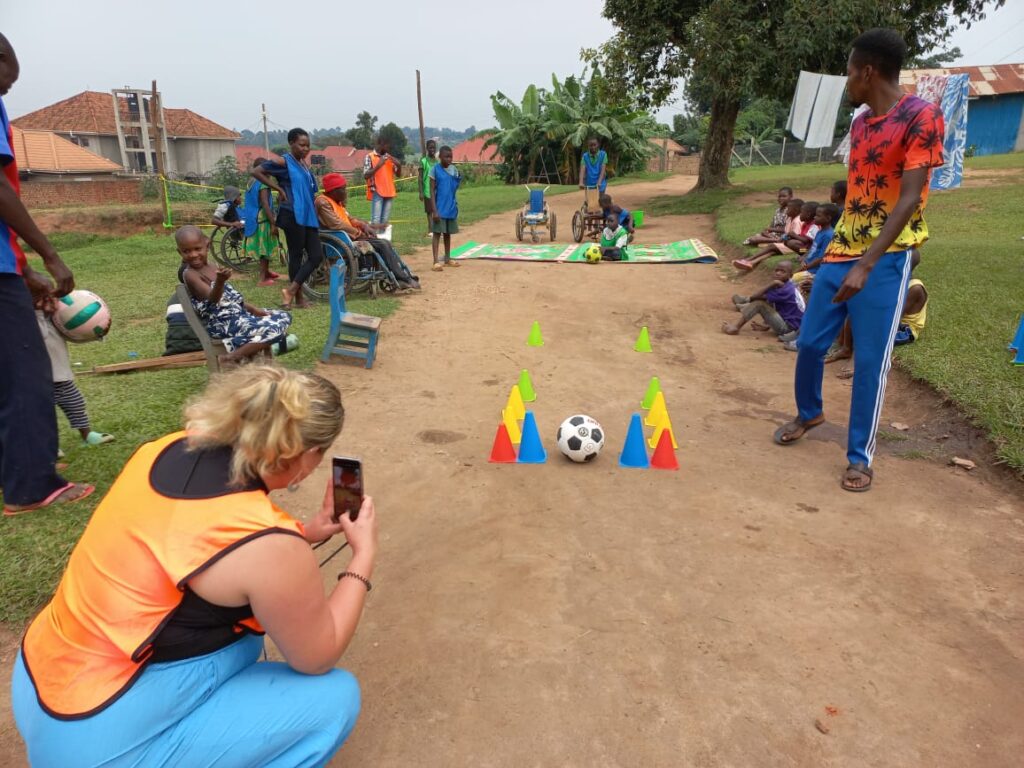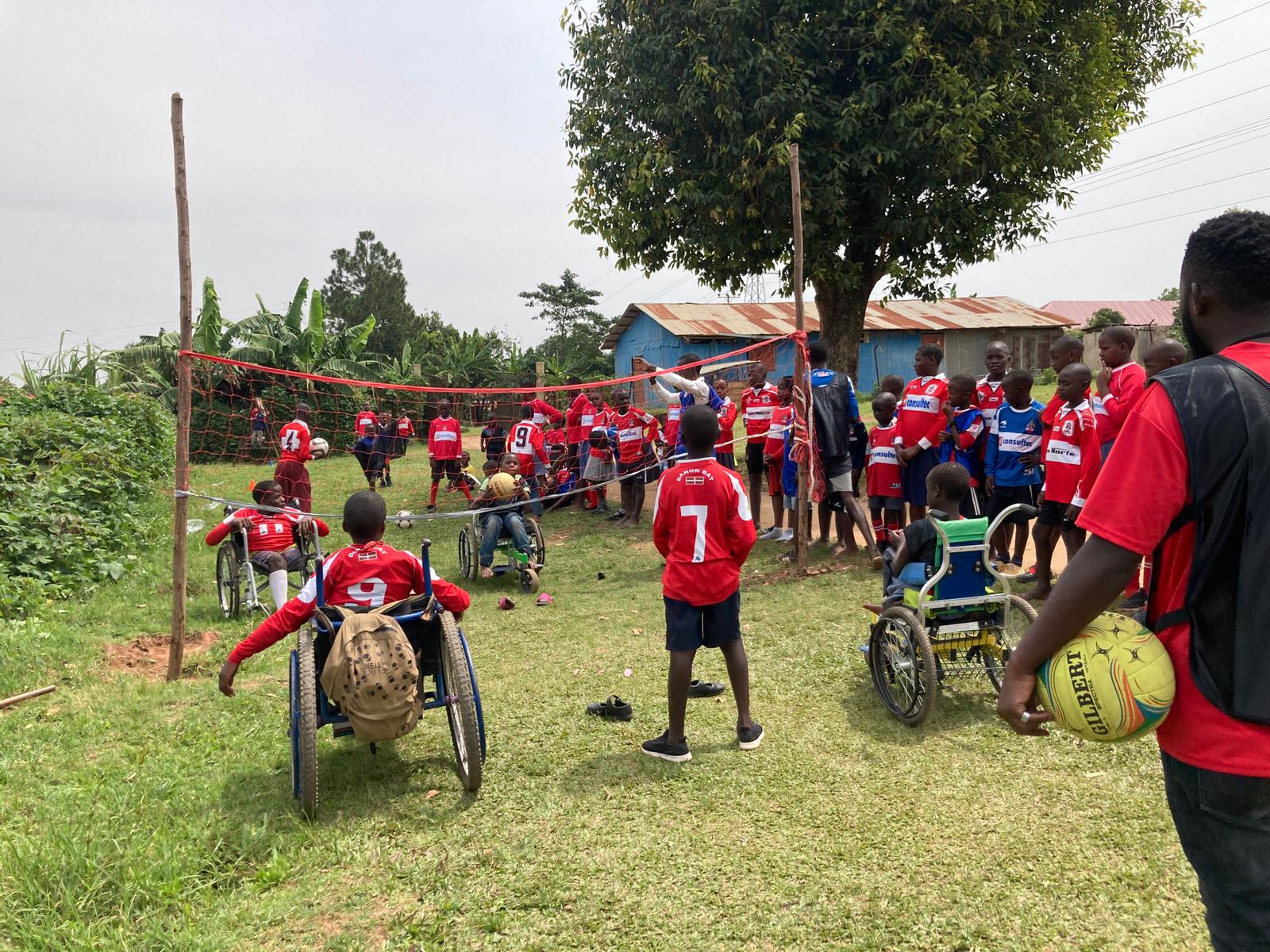Inclusion in sports is not just a concept; it is a movement that empowers children of all abilities to experience the joy, growth, and benefits that come from playing sports. For children with disabilities, being included in sports is about more than just physical participation. It is about providing equal opportunities for development, fostering social connections, building confidence, and promoting physical and emotional well-being.
1. Equal Opportunities for All
Inclusion in sports means giving children with disabilities the same chances to participate in physical activities as their non-disabled peers. It is about ensuring that no child is excluded from enjoying sports due to their disability. Whether it’s playing basketball, swimming, or running a race, all children should have the opportunity to engage in sports, with necessary adjustments made to accommodate their individual needs.
Inclusive sports allow children to experience the same challenges, excitement, and camaraderie that are integral to physical activity, helping to level the playing field for all.
2. Breaking Down Barriers and Stigma
Disabled children often face stereotypes that underestimate their capabilities, both in sports and in life. By including them in sports, we challenge these misconceptions and provide them with the chance to show their true potential. The simple act of allowing disabled children to participate alongside their peers sends a powerful message: disability does not define ability.
Inclusion in sports helps to break down social barriers, foster empathy, and build understanding among children of different abilities. It encourages respect, teamwork, and the recognition of each person’s value and potential.
3. Physical and Emotional Benefits
Sports are a powerful tool for promoting physical health. For disabled children, engaging in sports can improve mobility, strengthen muscles, enhance coordination, and boost overall fitness. Regular physical activity can also help manage or mitigate certain medical conditions, promoting better long-term health outcomes.
Beyond the physical benefits, sports also have significant emotional and mental health benefits. Participating in sports fosters a sense of achievement, boosts self-esteem, and helps children develop resilience. For disabled children, overcoming challenges on the sports field can translate into greater confidence in other areas of life, reducing anxiety and improving overall mental well-being.
4. Social Inclusion and Friendships
Sports are a unique way for children to form friendships and build social skills. Disabled children, when included in sports, are given the opportunity to connect with peers, work in teams, and experience the joy of shared victories and setbacks. These interactions help to develop communication skills, empathy, and cooperation, all of which are essential life skills.
Moreover, social inclusion in sports offers a platform for disabled children to interact with others in a positive, supportive environment, fostering a sense of belonging. The friendships formed in these settings can have a lasting impact, reducing isolation and promoting a more inclusive community.
5. Empowerment and Personal Growth
Inclusion in sports empowers disabled children by allowing them to take control of their physical and social development. It teaches important lessons such as perseverance, discipline, goal-setting, and teamwork. Sports provide a space where children can explore their own capabilities, pushing their boundaries and discovering new strengths.
For disabled children, these experiences are particularly empowering. Participation in sports allows them to define themselves by their abilities, rather than their disabilities, and helps to instill a sense of independence and self-worth.
6. Creating an Inclusive Society
When we promote the inclusion of disabled children in sports, we take steps toward building a more inclusive society as a whole. Inclusive sports settings teach children from a young age to appreciate diversity and celebrate differences. By involving disabled children in mainstream sports activities, we encourage the next generation to value inclusivity, fairness, and equality in all aspects of life.
An inclusive society is one where everyone, regardless of ability, has equal access to opportunities, rights, and participation. Sports can be a powerful catalyst in building that kind of society, one where all children, disabled or not, have the chance to thrive.
7. The Role of Coaches, Families, and Communities
Inclusion in sports is not just the responsibility of disabled children or their families—it requires a community effort. Coaches and sports organizations play a crucial role in creating accessible and inclusive environments by adapting sports programs and providing the necessary support. Training for coaches to understand the unique needs of disabled children is key to ensuring success and positive experiences.
Families are essential in supporting their disabled children’s participation in sports. Encouragement, advocacy, and practical support from families can help overcome the obstacles that may exist.
Finally, communities play a vital part by providing resources, funding, and creating inclusive infrastructure—whether through accessible sports facilities, transportation, or awareness campaigns that foster a culture of inclusion.
8. The Future of Inclusive Sports

The movement toward inclusive sports for disabled children is growing globally, with more organizations, schools, and communities embracing the idea of inclusion. Programs like the Special Olympics provide opportunities for children with disabilities to participate in competitive sports, while grassroots initiatives are bringing sports to local communities, ensuring that disabled children have access to the benefits of sports.
As more people become aware of the importance of inclusion, the possibilities for disabled children in sports are expanding. The future of inclusive sports looks promising, with a continued focus on breaking down barriers, creating supportive environments, and ensuring that every child, regardless of ability, can experience the joy and empowerment of sports.
Conclusion
Inclusion of disabled children in sports matters—not just because it gives them the opportunity to play, but because it enriches their lives and the lives of those around them. It promotes equality, personal growth, and social cohesion. By fostering an inclusive sports culture, we empower all children to develop their full potential, build meaningful relationships, and contribute to a more compassionate and inclusive society.


Leave a Reply